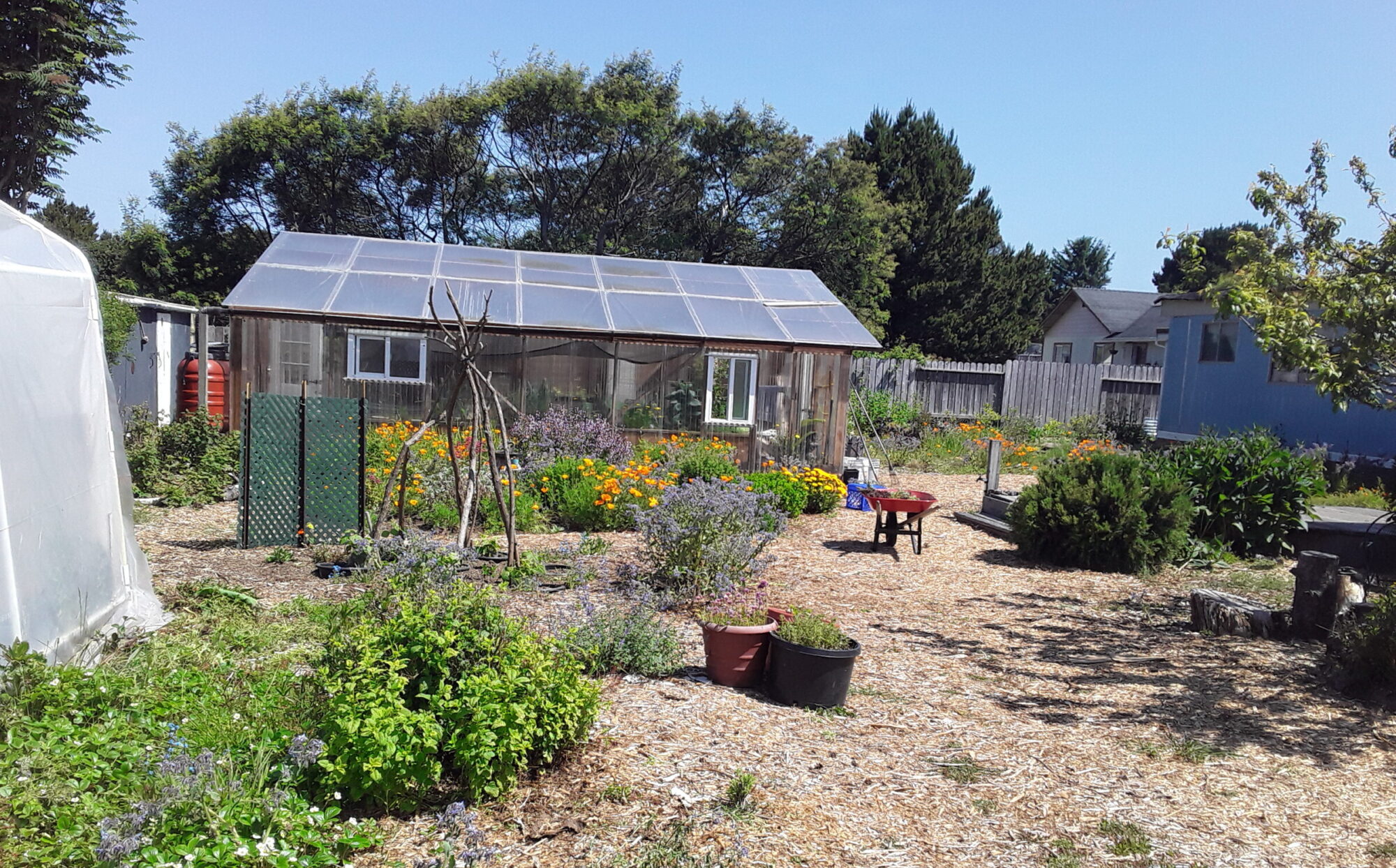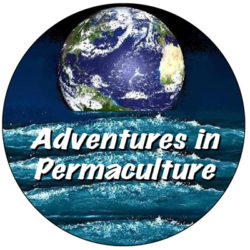
Mark DuPont (green shirt), left, urges watershed management at the opening of Adventures in Permaculture’s permaculture design course. (photo by Steven Saint)
by Trudy Thomas
Permaculture guru Mark DuPont gets right to the point. In a recent presentation to permaculture design certification students, he didn’t talk about how to grow great veggies or his favorite composting method. He talked about climate change and how to survive it.
DuPont and his partner Blythe Reis have spent the last 27 years practicing permaculture at Sandy Bar Ranch in Orleans, Calif., where they rent out vacation cabins. The Humboldt Bay 2019 Permaculture Design Certification (PDC) course opened at Sandy Bar April 13-14 and DuPont gave the keynote.
He said if we are going to survive earth’s climate crisis we must focus on our watershed. A watershed is a region’s drainage basin for precipitation, culminating in a body of water such as a river. DuPont said we must care for all of it, from its highest point or ridgeline to the river mouth where it empties into another river or body of water.
The group heard what he has done to care for the Klamath River watershed. Through the Mid Klamath Watershed Council, he has partnered with other groups and tribes to restore fisheries habitat, implement fire and fuels management, and encourage native plant growth. In partnership with the Karuk tribe, he has helped revitalize the forest ecosystem for traditional native foods such as tanoak acorns, camas bulbs, berries, salmon and medicinal plants.
He warned that humans are blindly exceeding the planet’s limitations on multiple levels, comparing it to rowing a boat backwards over the precipice of a waterfall.
“Permaculture is about turning the boat around and facing it,” said DuPont. “It’s a way to not go over the waterfall backwards.”
In the late 1980s, DuPont studied permaculture under renowned natural builder Ianto Evans followed by a stint teaching integrated pest management in South America. With several others, he and Blythe purchased Sandy Bar Ranch in 1992 where they taught permaculture design courses and ran a fruit tree nursery. In 2010, they launched Klamath Knot Permaculture to help create resilient communities.
DuPont is big on taking initiative. He said sometimes you’ve got to jump in and well, “try sh@%” – and some amazing things have happened. For example, DuPont and his colleagues successfully remediated a contamination site with mushrooms, a practice called mycoremediation. Mycelium, a network of filaments in the root system of fungi, use digestive enzymes to break down and absorb chemicals like hydrocarbons and pesticides, which inhibit photosynthesis and contribute to climate change.
Watershed management also means changing attitudes towards fire. DuPont and his neighbors take a watch-and-see approach when the forest around them ignites. Resisting panic, they closely observe what the fire might be doing to restore balance. “Don’t think fire is always catastrophic,” DuPont said. “A lot of fire is low intensity and can do a lot of good work.”
Climate change will bring more devastating wildfires, floods and crop failure. It means facing imbalances not seen before. But DuPont thinks there’s something that could keep us afloat in the rising tide of calamity threatening the planet – a healthy watershed.
“Your watershed is your lifeboat,” he said.

